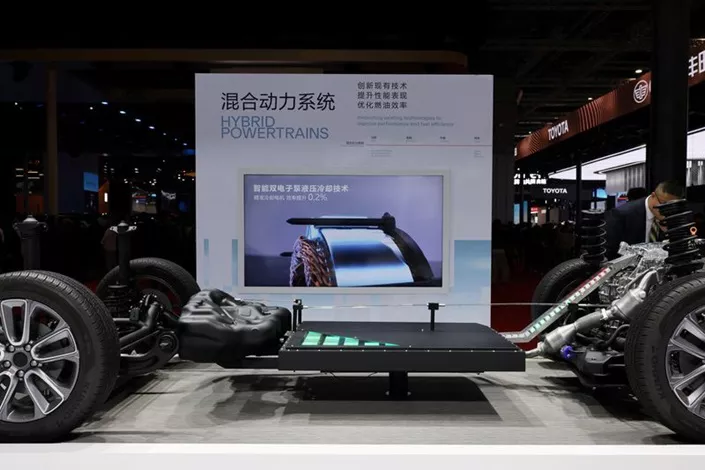The Shanghai Auto Show, a key event for the automotive industry, kicked off on Wednesday, highlighting the growing presence of electric vehicles (EVs) and the rise of local Chinese brands in the world’s largest car market. However, the event unfolded against a backdrop of uncertainty, with concerns over the U.S.-China trade war and tightening regulations on smart-driving technology casting a shadow over the industry.
The trade conflict between the U.S. and China continues to create turmoil, with tariffs disrupting supply chains and potentially dampening demand. U.S. President Donald Trump’s 145% tariff on Chinese imports, along with Beijing’s retaliatory measures, have pushed global growth forecasts lower. This has forced automakers and their suppliers to brace for new risks.
In response to the tariffs, a coalition of U.S. auto industry groups sent a letter to Trump, urging him to roll back the 25% tariffs on imported auto parts. The groups warned that these tariffs would raise vehicle prices and hurt sales.
Despite these challenges, car sales in China have remained strong this year. As of March, sales were up 12.5%, driven by top automakers like BYD and Geely. However, the trade war’s impact on China’s economy and international trade relations could put pressure on the market.
One of the most notable changes at this year’s show was a crackdown by Chinese regulators on the use of terms like “smart driving” and “autonomous driving.” This followed a fatal accident involving Xiaomi’s SU7 EV, which raised concerns about the safety of driver-assistance systems. Many automakers, including BYD, had been heavily promoting these features to differentiate their vehicles, but now they are shifting their focus to emphasize safety.
Xpeng, known for its advanced in-house technology, announced plans to launch a “training camp” for drivers to ensure safe use of its systems. Geely, meanwhile, revealed plans to complete a global safety testing center, the largest of its kind. Volkswagen highlighted its strict testing standards as part of its commitment to safety.
The Chinese market remains highly competitive, with foreign brands like Honda and Nissan struggling. Honda’s sales dropped by 34% in the first quarter, while Nissan saw a 28% decline. Volkswagen, which once dominated the market, experienced a 6% drop in sales.
The market’s competitiveness means that less than 10% of over 160 car brands in China have a market share above 2%. Brands like BYD, Chery, and Geely are among the few profitable companies, while others, including many foreign brands, continue to lose money.
Tesla, the only foreign automaker with a top-selling EV in China, has also been impacted by the trade war. Its sales in China were down 22% through March, and it has suspended orders for its Model S and Model X due to China’s counter-tariffs. CEO Elon Musk also announced a 71% drop in Tesla’s first-quarter net profit, citing delays in production caused by trade restrictions on rare earth magnets used in its humanoid robot project.
As the Shanghai Auto Show unfolds, the uncertainty of the global trade environment, changing regulatory landscape, and fierce competition in China’s car market are shaping the future of the automotive industry.
Related Topics:


